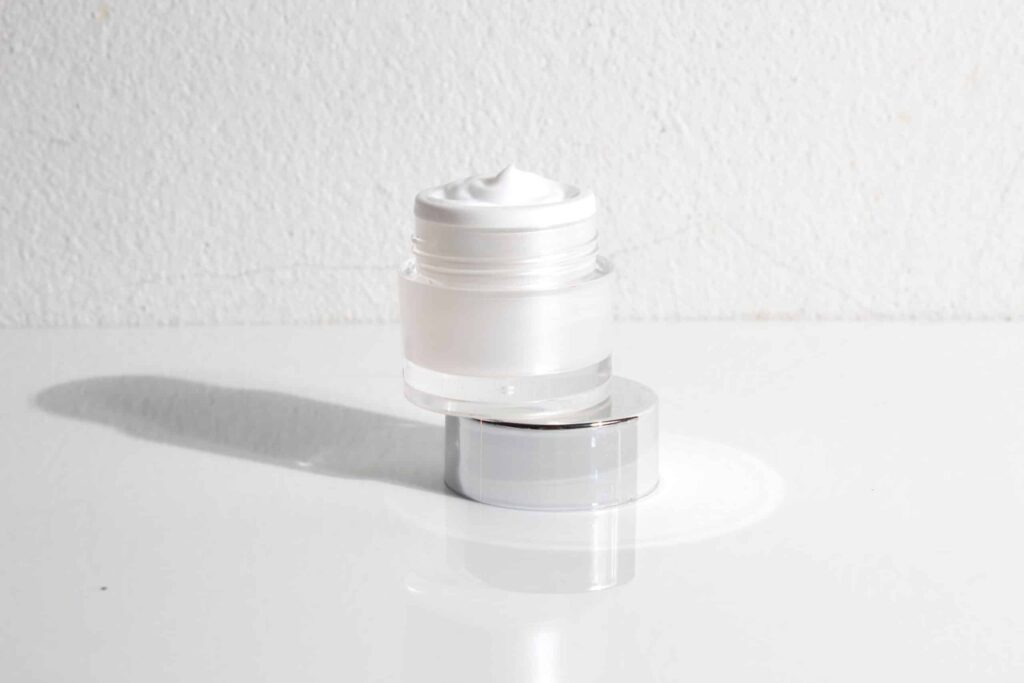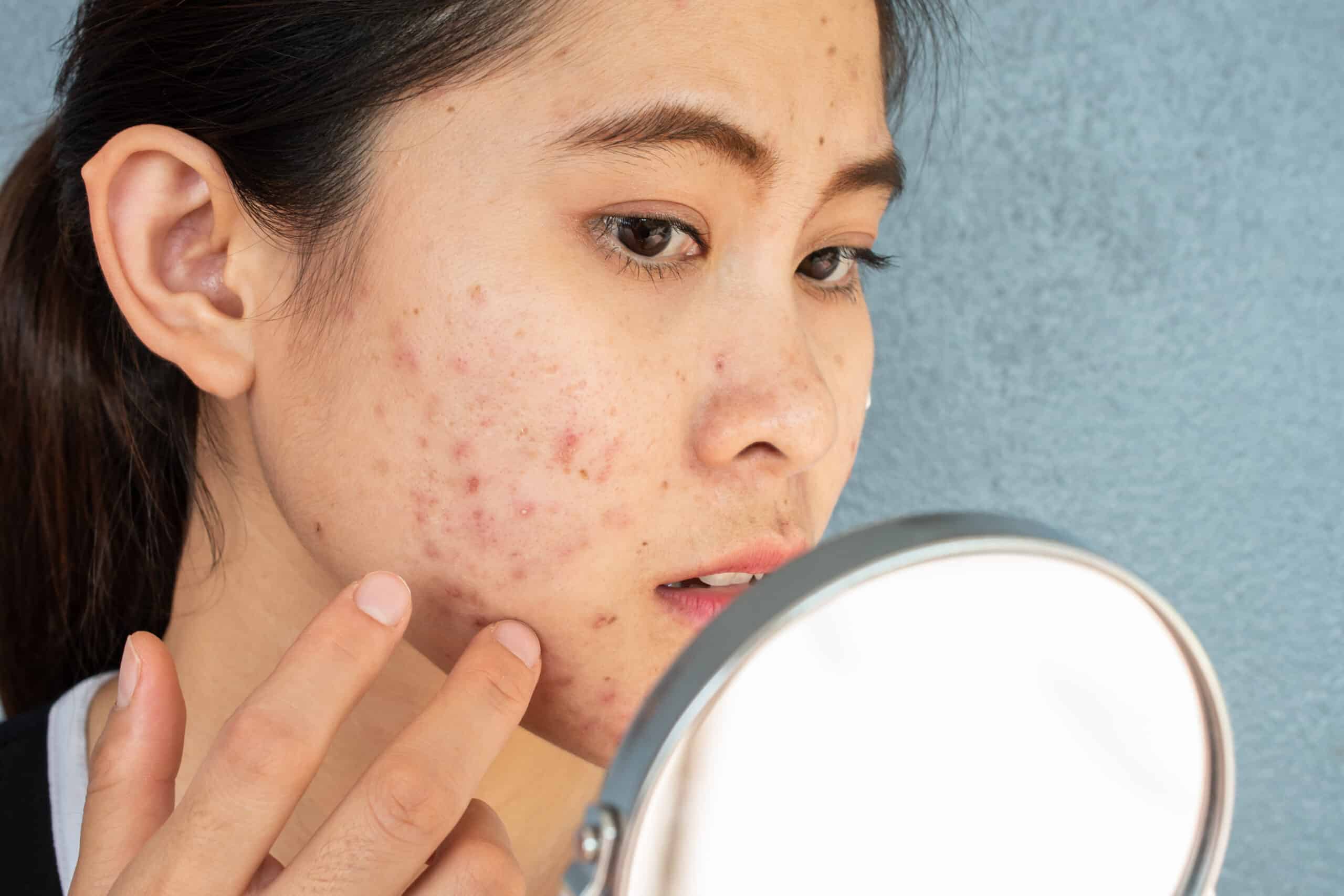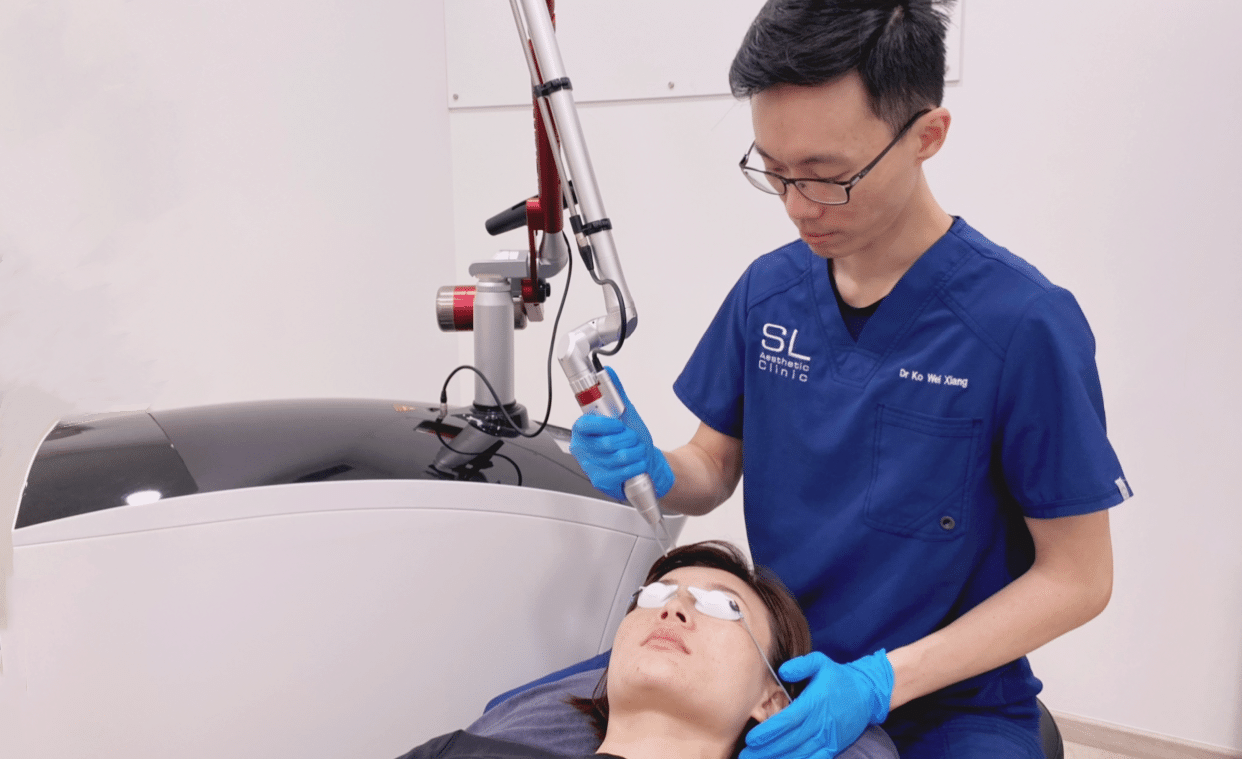
Dr Ko Wei Xiang: When is Oral Medication Necessary in Acne Treatment?
- September 12, 2023


In Singapore, acne is the most prevalent skin condition among adolescents, with half of them experiencing moderate to severe acne. Sometimes, this condition can be carried through adulthood, which greatly impacts one’s quality of life. A large proportion of acne results in some degree of scarring, which can be disfiguring in severe cases.
Most of us suffering from acne have tried over-the-counter remedies to varying degrees of success. These methods may be ineffective sometimes, but we do not need to suffer in silence. It is never too late to seek treatment from a doctor or specialist. A doctor may prescribe oral medications for acne when necessary.
When is prescription oral medication for acne treatment necessary, and what difference can it make in clearing up our skin? Find out here.
Many factors come into play when developing acne, and understanding the root cause of your condition can help determine the right treatment.
Common causes of acne include:
Prescription oral medication can help you:
Oral acne medications work via various mechanisms such as by reducing oil production, decreasing bacteria load and regulating hormonal changes that cause the blemishes. A proper discussion and assessment with your aesthetic doctor or acne specialist can determine whether oral medication for acne is right for you. Here are some indications that you may need oral medication for acne:
Acne can be a tricky condition, and every individual’s experience with acne differs. A proper assessment will ensure that your condition is treated in a safe and effective manner.
Sometimes, spot-treating with topical antibiotics or retinoids can prevent acne by keeping pores clear, reducing bacterial load and preventing oil build-up. However, there are instances where topical treatments are not enough to prevent breakouts. The main reasons for this are:
Cystic acne is considered the most severe form of acne, with pockets of pus formed in deeper layers of the skin. Cystic acne often has an element of bacterial infection, which contributes to the inflammatory process.
Types of severe or cystic acne include:
Severe or cystic acne can lead to scarring if not treated properly. This is why adequate treatment and a proper diagnosis is important for cystic acne. In these cases, oral medication is prescribed, such as:
This medication is common and is often prescribed by doctors for treating severe cystic acne. It is a retinol derivative of Vitamin A, and like most retinols, works by increasing cell turnover, reducing oil production, and getting rid of dead skin cells.
Isotretinoin is also known to change the skin’s microbiome, helping to clear up bacteria that cause acne.
Oral antibiotics may be prescribed for breakouts to minimise acne-causing bacteria (Propionibacterium acnes). When taken for a limited period of time, this helps to treat acne. Oral antibiotics should not be used beyond the necessary duration as this may give rise to bacterial resistance, and may disrupt the body’s natural microflora.
Hormonal breakouts can be caused by hormonal fluctuations, mainly increased androgen levels, in both men and women. This is why we often experience acne problems during puberty, and the hormone changes that come with this stage of life. That being said, adults are not spared from acne either. Adult acne is usually brought on by stress or underlying medical conditions that cause hormonal dysregulation, such as PCOS.
The sebaceous glands on our skin are particularly sensitive to hormones, and increased testosterone levels lead to increased oil production in the hair follicles. This, in turn, leads to breakouts when mixed with dead skin cells and bacteria that clog the pores.
In most cases, you can keep hormonal acne in control by managing stress, getting adequate sleep, eating healthy and opting for non-comedogenic or non-acnegenic skincare products.
Oral medication can also help effectively manage hormonal acne, often in the form of oral contraceptives or anti-androgens:
Oral contraceptives, more commonly known as birth control pills, contain hormones like oestrogen and progestin, which help regulate hormone levels and reduce functional androgen levels. This reduces sebum production, which, in turn, reduces your likelihood of breakouts.
It is important to remember that not all oral contraceptives are approved for treating acne.
Anti-androgens such as spironolactone work by blocking androgen hormones. Contrary to popular belief, they do not stop androgen production, but simply bind to and block androgen receptors, preventing androgens from activating them.
Topical acne medication like Aklief contain trifarotene, a retinoid which prevents the formation of new acne and reduces inflammation associated with pimples. Aklief is better tolerated compared to established retinoids like Differin and Epiduo, and is suitable for teenagers. WINLEVI is another popular topical medication prescribed just for hormonal acne; however it is not available in Singapore yet.
Severe acne such as nodulocystic acne has a high risk of scarring. Isotretinoin regulates the levels of matrix metalloproteinases (MMPs) in acne lesions to reduce the risk of scar formation. Although atrophic acne scars can be treated if it occurs, prevention of scars in the first place may be a cheaper and more viable option for some, provided that treatment is started early.
Acne is a complex condition, and combination therapy is often recommended. For a more comprehensive treatment plan, there are a variety of medical-grade solutions that can complement oral acne medication to reduce acne and prevent breakouts. Some examples include:
Cortisone acne injections, or intralesional corticosteroid injections, are a type of acne treatment available in Singapore for deep, large, inflamed nodules or cysts.
Corticosteroid injections are a synthetic hormone that work by healing deep-tissue acne with its anti-inflammatory properties. An aesthetic doctor or acne specialist administers the injection directly into the large cystic acne, flattening the cyst and reducing the redness. Results are almost immediate — within a few hours or a day.

Laser therapy can be used alongside prescription oral acne medication to tackle breakouts. One such example is the Fotona Acne Laser, which utilises targeted thermal energy that can reach layers of the skin where acne lesions are.
At various settings, the Fotona Acne Laser can kill off acne-causing bacteria and reduce oil production in overactive sebaceous glands. This treatment has minimal pain and downtime, and results become gradually more visible with each session.
Another laser treatment offered at SL Aesthetic Clinic is the Ethosome Gold Photothermal Therapy Laser Treatment (PTT). This treatment utilises a combination of gold nanoparticles and photothermal therapy to effectively treat acne. A targeted photothermal laser is used to activate the release of active ingredients that contain anti-inflammatory and antimicrobial properties.
When combined with prescription oral acne medication, topical acne medications with active ingredients can work to eliminate various types of acne and reduce inflammation. Common prescription topical acne medication include:
The main differences between over-the-counter topical medication and prescription topical medication are strength and formulation, as well as active ingredients present. Prescription topical medications often contain higher concentrations of active ingredients in order to treat more severe forms of acne — and with higher potency requires expert supervision.
Consistency plays a key role in efficacy of treatment, so remember to apply the topical medication as advised by your acne specialist.
Chemical peels can effectively regenerate skin and eliminate superficial acne. They involve the use of non-toxic acids such as lactic acid, salicylic acid or glycolic acid at specific concentrations. They also help prevent future breakouts by unclogging pores and removing dead skin cells.
All treatments have their own benefits and risks. A thorough consultation with your acne specialist will help determine what combination therapy would suit you best.
Understandably, acne can cause physical and emotional distress, and take a toll on your self-esteem, affecting your quality of life. Thankfully, there are different treatments available to effectively manage acne and achieve clear skin.
SL Aesthetic Clinic offers a variety of medical-grade treatments for acne, administered by professional aesthetic doctors. If you experience severe or cystic acne, getting the right treatment is important in preventing acne scars and a worsening skin condition.
Contact us for a detailed skin analysis and comprehensive treatment plan.
Like what you read? Share them!